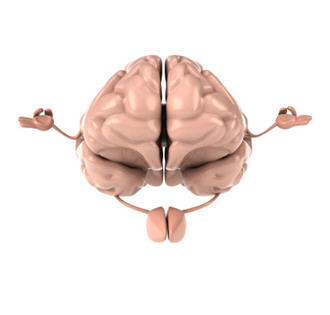
Participation in Mindfulness-Based Program Improves Teacher Well-Being
October 24, 2013—Teacher well-being, efficacy, burnout-related stress, time-related stress and mindfulness significantly improve when teachers participate in the CARE (Cultivating Awareness and Resilience in Education) for Teachers program, according to Penn State researchers.
CARE is a mindfulness-based professional development program designed to reduce stress and improve teachers' performance and classroom learning environments, developed by the Garrison Institute, a New York-based non-profit organization that applies the transformative power of contemplation to today's social and environmental concerns. CARE combines emotion skills instruction, mindful awareness practices and compassion-building activities to provide teachers with skills to reduce their emotional stress and improve the social and emotional skills required to build supportive relationships with their students, manage challenging student behaviors, and provide modeling and direct instruction for effective social and emotional learning. The intensive 30-hour program is presented in four day-long sessions over four to six weeks, with intersession phone coaching and a booster session held approximately two months later.
"Today, teachers are experiencing high levels of stress that can have a negative impact on their teaching and the learning environment," said Patricia Jennings, assistant research professor. "CARE is designed to provide the tools they need to manage the emotional ups and downs of teaching. The program combines mindful awareness practices and emotion skills training applied to the specific challenges of the classroom environment."
The researchers recruited 53 participants from urban and suburban public schools in two school districts in a small northeast U.S. metropolitan area to participate in the study. They randomly assigned teacher participants to either CARE or a wait list control condition. Those in the CARE group completed a battery of self-report measures at pre- and post-intervention to assess the program's impacts on general well-being, efficacy, burnout-related stress, time-related stress and mindfulness.
Participants reported high levels of satisfaction with the CARE program, indicating that its use was improving their relationships with their students, classroom management and classroom climate. Improvements in teachers' well-being, efficacy, burnout and mindfulness were associated with teachers' reports of improvements in student and classroom outcomes. Overall, this study's findings indicate the potential of a mindfulness professional development program to reduce emotion reactivity and promote well-being among teachers.
"An important reason that CARE is effective in reducing burnout, improving teachers' enjoyment of teaching and reducing poor health outcomes is that CARE has been specifically tailored to meet the needs of teachers," said Mark Greenberg, Edna Peterson Bennett Endowed Chair in Prevention Research and professor of human development and psychology. "In CARE teachers not only learn new ways to handle stress but they learn to nurture themselves and build a more caring and compassionate classroom."
The results appeared in a recent issue of the journal School Psychology Quarterly.
A second study of CARE, which is currently underway in New York City, aims to replicate these findings in a larger sample of teachers and to examine the effects of these changes in teachers' well-being on the quality of their classroom environments and their students' academic and behavioral outcomes.
ARTICLE:
“Improving Classroom Learning Environments by Cultivating Awareness and Resilience in Education (CARE): Results of a Randomized Controlled Trial,” Jennings, Patricia A.; Frank, Jennifer L.; Snowberg, Karin E.; Coccia, Michael A.; Greenberg, Mark T. School Psychology Quarterly, Sep 9, 2013, doi: 10.1037/spq0000035.
RELATED RESEARCH:
Study Shows Mindfulness Training Can Help Reduce Teacher Stress and Burnout
Mindfulness at School Reduces Likelihood of Depression-Related Symptoms in Adolescents
Putting Feelings into Words Produces Therapeutic Effects in the Brain
